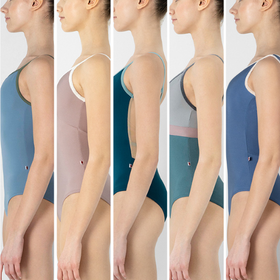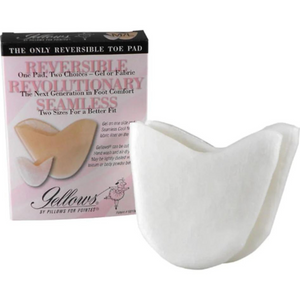How Often Should I Update My Tights?
When it comes to dancewear, tights are an essential component for dancers. They not only complete the dance ensemble but also serve practical purposes, such as providing support and enhancing the aesthetics of movements. However, tights are not immune to wear and tear, and dancers often wonder how often they should replace them to maintain comfort and performance. In this blog, we will explore the factors that influence the lifespan of dance tights and offer recommendations on when to replace them.
Consider the Following:

1. Fabric Quality
One of the most crucial factors that determine the longevity of dance tights is the quality of the fabric. High-quality tights made from durable materials like nylon, spandex, and microfiber tend to last longer than lower-quality alternatives. As a dancer, investing in well-made tights can save you money in the long run. Quality tights are less likely to snag, run, or lose their elasticity, which means you won't have to replace them as frequently.
2. Frequency of Use
The frequency with which you wear your dance tights will significantly affect their lifespan. Professional dancers who wear tights daily for rigorous practice and performances may need to replace them more often than recreational dancers who wear them occasionally. Dancers who use tights every day might find that they need to replace them every few months, while those who dance a few times a week could make their tights last for a year or more.
3. Proper Care
Proper care is vital in extending the life of your dance tights. To keep them in good condition, follow these care tips:
- Hand wash your tights in cold water using a mild detergent. Avoid machine washing, as the agitator can cause damage.
- Gently squeeze out excess water, and never wring or twist the tights.
- Dry your tights by laying them flat on a clean towel. Avoid hanging them by the waistband, as this can stretch the elastic.
- Keep your toenails trimmed to prevent snags and runs.
- Store your tights separately from other dancewear to prevent friction damage.
4. Fit and Size
Wearing tights that fit well can help extend their lifespan. Tights that are too small are more likely to stretch, tear, or lose their elasticity. Tights that are too large may bunch up or wrinkle, increasing the risk of snags. Ensure you choose the right size according to the manufacturer's guidelines and your own measurements. Our specialists at the Dancewear Corner showroom are happy to help with sizing recommendations!
5. Type of Dance
The type of dance you practice can also impact the lifespan of your tights. Dancers who perform styles that involve intense floorwork, like contemporary or breakdancing, might experience more wear and tear on their tights than ballet dancers who primarily use the barre.
When to Replace Your Dance Tights

In general, here are some signs that indicate it's time to replace your dance tights:
1. Runs, holes, or snags: If you notice runs, holes, or snags in your tights that can't be easily repaired, it's time to replace them.
- Age old trick: Spray some hairspray on the first sight of a run to bond the material and prevent a bigger hole.
2. Loss of elasticity: When the tights no longer provide the necessary support or start sagging, it's a sign that the elastic fibers are wearing out.
3. Fading or discoloration: Tights that have lost their color or developed unsightly stains may need to be replaced for aesthetic reasons.
4. Uncomfortable fit: If your tights are uncomfortably tight or excessively loose, it's time to find a new pair that fits properly.
Conclusion









